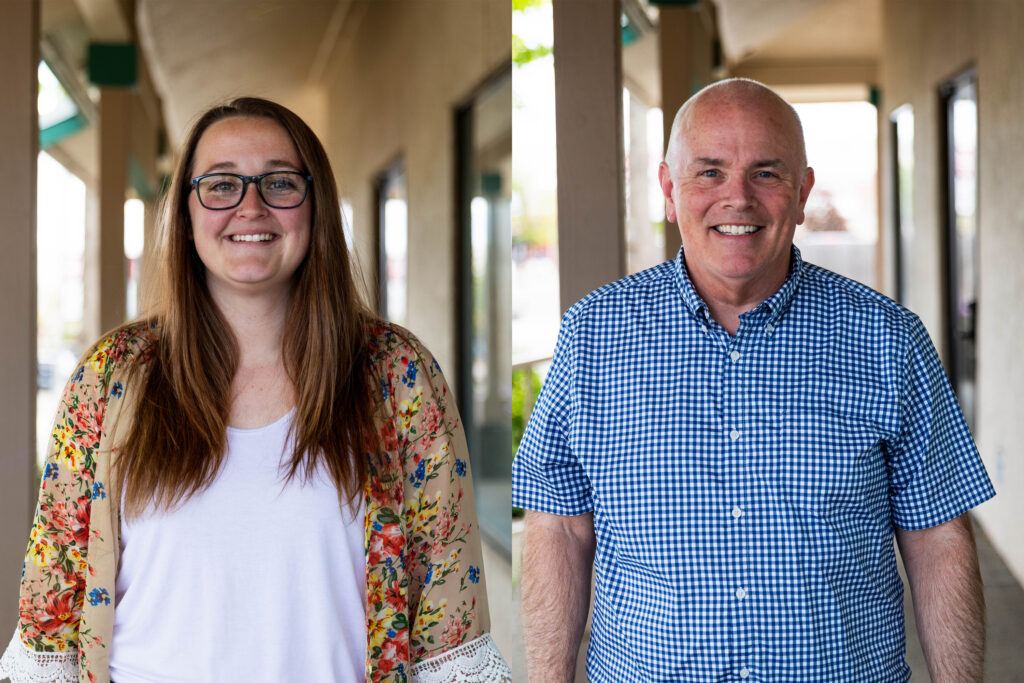At Comprehensive Healthcare, we are committed to providing integrated and whole-person care to our clients. Creating healthy and vibrant communities involves addressing all aspects of health, from mental health evaluations to housing to law enforcement. This requires active coordination with our clients and community partners to meet all of their health needs. We form community partnerships by collaborating with innovative and impactful organizations like the Kittitas County Health Network (KCHN).
Kittitas County Health Network is a non-profit organization dedicated to improving the health and well-being of residents in Kittitas County, WA. Currently, 45 organizations participate in the network, collaborating to break down barriers to health within the community by fostering cross-system collaboration and innovative health initiatives. These organizations encompass a diverse range of community agencies, including law enforcement, healthcare, education, childcare, art therapy, equine therapy, substance use providers, and jail services.
This broad collaboration is crucial for the health and well-being of our communities. A person is not just a broken arm, a mental health disorder, or someone suffering from homelessness. By offering a collaborative approach, we can better treat individuals as whole people, offering them more integrative and holistic care. That’s why Greg Aubol, Director of Kittitas, and Sunnyside services here at Comprehensive Healthcare, and Ali Corbett, Therapist and Designated Crisis Responder (DCR) at Comprehensive Healthcare, have not only partnered with KCHN but have also taken important leadership roles within the organization.
“A big emphasis with KCHN is cross-system collaboration, which fits well with what we do here at Comprehensive,” shares Greg. “When you think about Comprehensive and our focus on innovation, the things that KCHN is doing are really innovative.” Greg goes on to share how KCHN facilitates services through a network of providers across the county, providing things such as MAT services at the jail, creating work groups with key community organizations, and ultimately improving the health care delivery system in Kittitas County.
“So, they’re not only finding and filling the gaps and fixing them, but they’re building strong community relationships, and that’s huge,” said Ali. “Just building those community relationships is huge in any town but is especially important here, given how rural we are. It helps reduce barriers for people accessing a wide range of services within the county.”
So, they’re not only finding and filling the gaps and fixing them, but they’re building strong community relationships, and that’s huge.
-Ali Corbett, Therapist and DCR
“When we’re able to build and maintain those relationships, it goes a long way toward paving the way for our clients to get what they need and have their needs met,” Greg adds. KCHN works with network participants through the Board of Directors, the Leadership Council, and various work groups and task forces. One of the workgroups, the Community Resources group, consists of mental and medical healthcare providers (including Greg and Ali) committed to maximizing the area’s limited resources.
“They spend time making plans to support community members, so they aren’t utilizing the most intensive, expensive resources in the community unnecessarily.” Said Greg.
“The plan is to get an individual’s needs met without them having to call an ambulance for something like walking to the bathroom,” Ali elaborates. “Or coming into the ER for what could have been a PCP appointment. They’re just creating a plan to meet their needs and support them without using the minimal resources we have to begin with.”
One of the recent initiatives the group worked on was the one-tenth of 1% sales tax, which was implemented to support behavioral health services in the county.
In addition to his work chairing the Community Resources workgroup, Greg has served as the at-large member of the KCHN Board of Directors Executive Committee the past two years. In a recent board meeting, he was elected as the new Board of Directors Chair. “I’m looking forward to supporting the mission of KCHN from a leadership role and continuing to build on relationships within the community,” Greg shares regarding his new role.
Ali has also started serving in a new role within KCHN as a member of the leadership council, a group dedicated to building those community relationships and identifying where there are gaps and how dollars can be spent to address those gaps in care. “A lot of times, people don’t even know what is there and what’s available,” shares Ali. “So, getting the word out is another natural piece of that.”
Greg and Ali’s roles within the organization will be a fantastic opportunity for Comprehensive Healthcare to enhance collaboration with the community organizations serving our clients. Membership with the KCHN has already increased Comprehensive’s reach in the Kittitas area. “We’ve been able to expand school-based services from two to four full-time school-based therapists serving county schools. We’ve also been able to start first-ever MAT services in the jail; we have two full-time crisis case managers in the emergency room at the hospital that we didn’t have before,” shares Greg. These initiatives have been funded through KCHN and the pass-through funds allocated to Comprehensive Healthcare through grants awarded to KCHN.
In closing thoughts, Greg shares how thankful he is to work for a place like Comprehensive Healthcare, which encourages participation in groups like this. “I really appreciate the leadership support from this organization, which is not only allowing us but also encouraging us to engage this way in the community,” said Greg. “Those relationships pay dividends.”
The ever-evolving partnership between Comprehensive Healthcare and the Kittitas County Health Network exemplifies a unified approach to community health. These partnerships enable us to address the diverse needs of our clients more effectively, ensuring they receive the care they need. As we continue to build on these successes, we remain committed to fostering a healthier, more vibrant community in Kittitas County.



